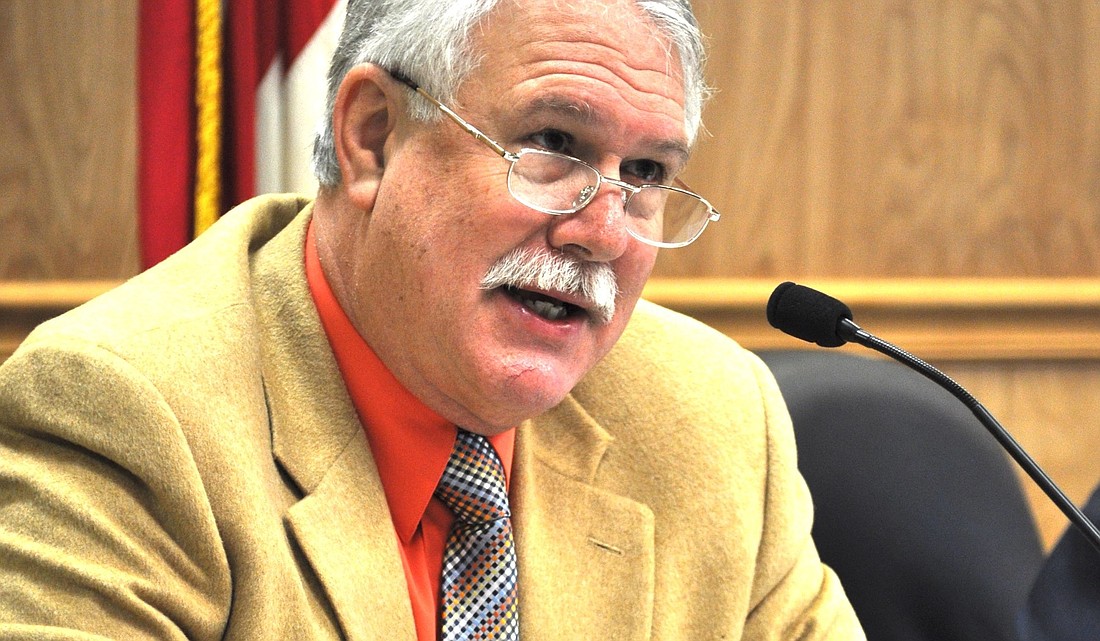- November 25, 2024
-
-
Loading

Loading

Dear Editor:
The pessimist complains about the wind; the optimist expects it to change; the realist adjusts the sails (William Arthur Ward).
Let’s face it: We have our share of pessimists in Flagler County. I read the letters to the editor section in all of our local papers, and they appear to be everywhere.
Then there are the optimists. They aren’t sure what they want to change, but they know something has to change.
Lastly come the realists. To me, those who choose this path — I’d like to think I’m one of them — recognize that what we’ve been doing in the past regarding levels of service, the size of government, how much we tax, and even how do we handle economic development, will require some “adjusting of the sails.”
With the economic summit coming up, I’ve been thinking over my own “Ten Economic Development Commandments for Trimming Sails” — not necessarily ranked in any order of importance. Below are some of my questions:
1) Should Palm Coast just remain a bedroom community for other areas and forget trying to grow into a city much bigger than we already are? Until we have the guts to find a way to answer this question, we’ll never have full buy-in.
2) Should Palm Coast still opt out of any economic development proposals, let the economy improve on its own, and wait for the commercial/industrial folks to come to us? It’s happened before, so why not just wait it out and see what happens?
3) Should government be in the business of economic development in the first place?
a. If the answer is yes, to what extent should it be involved? Should it create pad-ready sites, create an industrial park, put up spec buildings, offer incentives?
b. What types of incentives should be included? Cash, impact fees, mitigation credits, old City Halls?
4) One of the prime considerations of anybody thinking to relocate here is the "availability of the workforce.” Actually, I think the question is better put, "What is the capability of the workforce?” Does our workforce have the training and skill set necessary to support some of the new businesses trying to relocate here, or will new residents with preferred skill sets replace others who couldn’t adjust, forcing those who cannot adapt to move elsewhere?
5) Recent studies have indicated there are a number of reasons potential commercial/industrial projects do not locate to a new area. Some didn’t respond, but for those that did, 21% indicated the incentives offered were not enough, and 10% indicated they couldn’t find the right land or proper building.
Do we think our county can compete dollar-wise with other local governments having millions of tax dollars at their disposal to throw at these new projects?
Does local government at the city or county level present roadblocks to new businesses with overly stringent permitting requirements, difficult land development codes, and inept “bureaucrats” imposing high cost impact fees?
For example, I looked at some numbers from Jacksonville recently which showed after land cost, site work, and construction cost were added to concurrency fees, the cost to a big box retailer was about $8.25 million. Their rental income was only $520,000 and mortgage payment was $600,000, so they were in an $80,000 hole to start with, and the project didn’t happen.
Remove the $1.2 million for concurrency fees and the project comes into town, jobs are produced and taxable value is created that far exceeds the “benefit” of concurrency fees coming into local government.
6) Do any “benefits” outweigh the risk of failure from poor implementation by government or uncertainties of the market place when using the public as the funding source? It’s one thing to risk your own money on a venture; it’s another thing to risk the public’s. Further, does the economic development effort implemented promote the circulation of additional secondary dollars within the community? Do other smaller companies that support the larger effort encourage an exchange of money locally with other businesses?
7) Will our efforts compete with other local businesses and the funds they have already invested in our local economy? Is it fair to finance a government effort to compete against other local business owners unless both are on a level playing field?
8) Is it true if one benefits, we all benefit? Should both county and local city government directly benefit in their general funds from the investment of the public's tax dollars? Should funding priorities be encouraged within community redevelopment areas? The way CRAs are set up, the CRA benefits, but not the local governments or county government. Do we care?
9) Should we fund any project that doesn't have any "skin" in the game? The more the company has invested, the more likely it is to stick around. The way tax breaks are tossed about, the local government won't receive any direct benefits to their general funds for probably the first five to 20 years because a property tax or capital-improvement tax is usually the very first incentive offered to attract the business in the first place.
If the company has nothing vested within the local community, and it relocates someplace else as the tax breaks dry up, is the creation of jobs over 10 to 20 years enough for local governments to spend money attracting them?
10) Lastly, during the comment period on economic development at the Jan. 31 intergovernmental workshop, there was no consensus on funding. Is it possible we ready to tackle the issue of economic development with varied views of cost/benefit?
I’ll be trying to get answers to these and other questions at the summit. I hope all of you will take a keen interest in the discussions and get involved wherever you can. Answers to some of these questions may trim the sails and adjust the course of economic development one way or another.
Frank J. Meeker, Palm Coast City Council
District 2